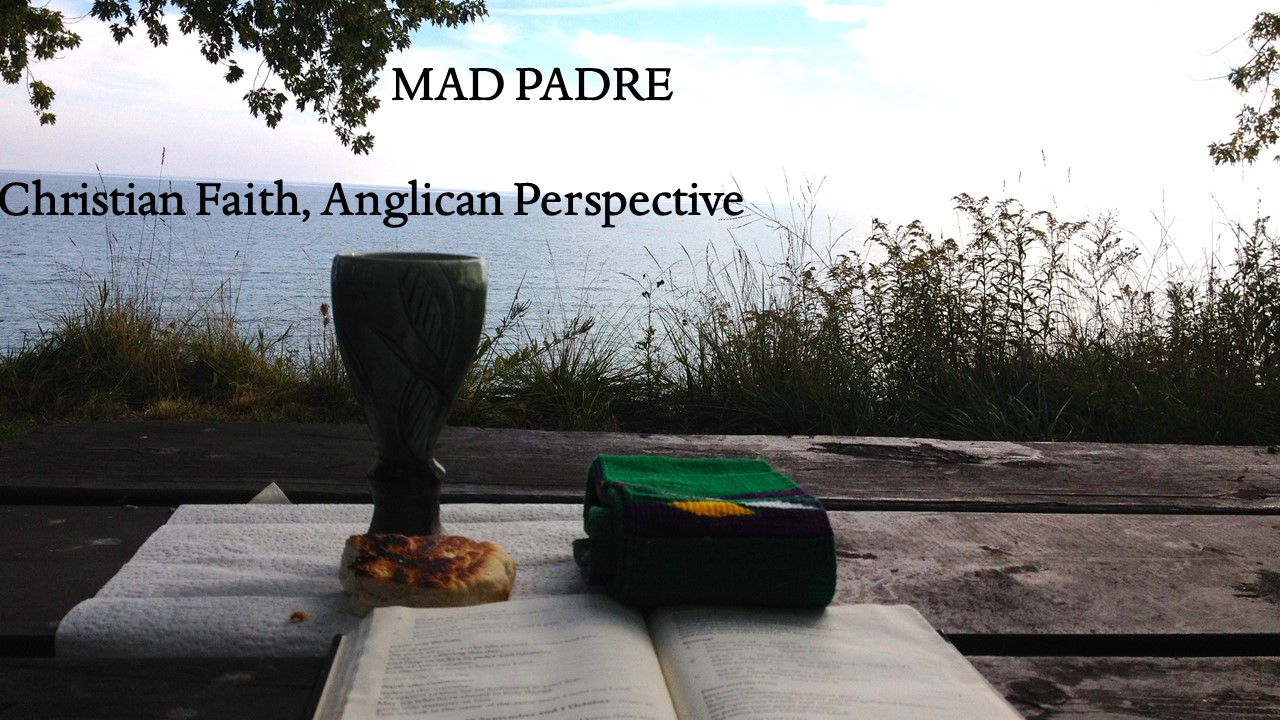Preached at All Saints, Collingwood, Anglican Diocese of Toronto, 5 May, 2024, the Sixth Sunday of Easter. Readings: Acts 10:44-48; Ps 98; 1 Jn 5:1-6; Jn 15:9-17.
“This is my commandment, that you love one another as I have loved you. (Jn 15.12)
Summary: As Christians, we are commanded (not asked) to love others, and yet we will consistently fail at this undertaking unless we see love as a spiritual gift, unless we ask for this gift, and unless we cultivate it.
On a fine September day many years ago, twenty five priests, ministers, and pastors reported to Base Borden for our training to become military chaplains. Father Gordon Mintz and I were among this group. Our calling was to show the love of God to Canada’s men and women in uniform, but first, we had to show God’s love to one another. You would think that twenty five priests, ministers, and pastors would have no trouble showing the love of God in their lives and actions. The sad truth is that we often failed, miserably.
Our three months of training was very mild by military standards, designed to produce just enough stress and hardship to see how we would perform under pressure. Our instructors were seasoned soldiers, who were amused to be training padres, and who were under orders not to shout at us, at least not too much. We were divided into three sections, and expected to work as teams, but as the pressure was applied, love and teamwork were often lacking. Personal habits and quirks quickly got annoying, we people became irritable, and sometimes were downright selfish. We learned who we could trust, and who would always look out for themselves.
Things got so bad that one of our groups became downright dysfunctional. Finally their training sergeant lined them up for a lecture. “You padres don’t have to like each other,”, he said, “but in the military you’re expected to work with others”. I remember overhearing this lecture and being shocked that it had come to this, that priests, pastors and ministers weren’t being asked to love one another, weren’t even being asked like one another, just being told to work together.
Jesus sets the bar a lot higher than that sergeant did. Jesus asks us to love one another. In fact, he doesn’t ask us to love one another, he commands us to love one another. It’s not the only command Jesus gives in the gospels - he tells people to repent and to follow him, but this command, “love one another as I have loved you”, is certainly the greatest and most important of Jesus’ commandments.
So the obvious problem we need to confront is our simple inability to love the way that Jesus loves. Jesus here speaks of a great transmission of love, love flowing from the eternal and infinite heart of God the Father to the Son, and from the Son to the disciples. It is a love that has already been expressed by Jesus washing his disciples’ feet as a servant would, and it is a love that is forecast in his impending death, when Jesus will lay down his life for his friends (Jn 15.13). How can we love in the humble, self-sacrificial, and infinite way that Jesus loves us?
The answer is that we can’t love this way, at least, not by ourselves. It’s fine to say that we love others as an abstract principle, but it’s harder to love specific people, especially when we meet them, and even when we meet them in church! In his book The Screwtape Letters, C.S. Lewis imagines a senior devil advising his trainee on how to discourage faith in someone who has just started going to church.
When he gets to his pew and looks round him he sees just that selection of his neighbours whom he has hitherto avoided. You want to lean pretty heavily on those neighbours. Make his mind flit to and fro between an expression like "the body of Christ" and the actual faces in the next pew. It matters very little, of course, what kind of people that next pew really contains. You may know one of them to be a great warrior on the Enemy's side. No matter. Your patient, thanks to Our Father below, is a fool. Provided that any of those neighbours sing out of tune, or have boots that squeak, or double chins, or odd clothes, the patient will quite easily believe that their religion must therefore be somehow ridiculous. (Screwtape Letters, Chapter 2)
If the sort of minor annoyances that Lewis describes can keep us from fully loving our neighbour, then, as my opening story suggested, how much worse will it be for us when stress, tension, and selfish impulses overwhelm us and pull us away from the love of God?
We need to be honest with ourselves that we cannot produce the love that Jesus commands of us if left to our own devices. Love is a spiritual gift. You know the famous passage from 1 Corinthians 13 that if often read at weddings - “love is patient, love is kind” (1 Cor 13:4-7). When I’ve tried to prepare couples for marriage, I like to tell them that the love described here is not human love. Rather, love is a spiritual gift that will help them keep their wedding vows, but they have to ask for it.
In John’s gospel, Jesus invites his friends to “abide in my love”, just as he abides in his Father’s love. We all know the term “abide” from the old hymn “Abide With Me” where it means something like “stay with me” or “don’t leave me”. Here Jesus means something richer and more permanent. “Abide in my love” could mean “shelter in my love”, “remain in my love”, or just “live in my love”. In other words, “abide” has that same sense of an close and sustaining relationship that was in Jesus’ branch and vine language from last Sunday. Jesus invites us to find shelter inside the love that he and the Father share, to enter into the very heart of the Holy Trinity.
Again, this is not a love that we can produce ourselves. It is a gift that we have to ask for. One example of someone who asked for this love is the medieval English mystic, Julian of Norwich. You may have heard about her during our Lent Madness exercise, and I wrote a piece on her in this week’s All Saints Alive. After a period of sickness, Julian wrote of very powerful experience of God’s love that she received after her had fixed her thoughts on Jesus and on his sufferings before his death on the cross. In her mind’s eye, these sufferings became signs of Jesus’ great love for her and for all humanity, which explains the title of her book, Revelations of Divine Love.
At the very end of her book, Julian described all her visions and insights as one great gift from God who wishes to draw us from our sorrows and darkness to God’s heavenly joy. Julian describes hearing these final words: ‘Wouldst thou learn[3] thy Lord's meaning in this thing? Learn it well: Love was His meaning. Who shewed it thee? Love. What shewed He thee? Love. Wherefore shewed it He? For Love. Hold thee therein and thou shalt learn and know more in the same. .. Thus was I learned[4] that Love was our Lord's meaning” (Revelations Chapter 86). https://www.gutenberg.org/files/52958/52958-h/52958-h.htm#CHAPTER_LXXXVI
The gift of the great Christian mystics is that they unveil something of God’s nature and purpose. Julian recognized that God in Christ loves what he created and wishes to draw us from sin and darkness into God’s joy. Her insights began when she focused on Jesus, on Jesus’ love for her, and on her love for Jesus. Julian realized that love was reciprocal, that her love for Jesus was returned infinitely, and this realization gave her joy and freedom.
While we can’t all be mystics, I think we can find ways to abide in Jesus’ love. One way might be to find stories in the gospel that we can keep in our hearts and minds. John’s gospel offers two powerful examples. I’ve referred to Jesus washing his friends’ feet, but an example of Jesus’ love being returned comes just before his final days in Jerusalem, when he stays with his friends, Lazarus and his sisters. At dinner that night, Mary anoints Jesus’ feet with costly perfume and wipes them with her hair. It’s a powerful story of how we can adore Jesus and give him all we have, and find our love vastly returned, Perhaps you can find a similar story, or just a mental image, that might focus your love on Jesus and see that love returned. Or simply ask God for the gift of love, as God loves you in Christ.
I think back to those would be chaplains, some of us so conspicuously lacking in love. We focused on our physical fitness, on trying to be soldiers. Some of us wanted to fit in to the military. Some of us just wanted stable careers and officer’s pay. We wanted these things more than we wanted the one thing that was there at the start, the gift of God’s love. We just had to ask for it.



